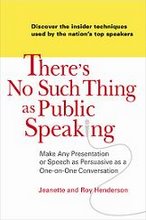One of the many beauties of the American democratic system is that when we cast our vote on Nov. 7, we chose individuals, candidates who had his or her own line on the ballot. It wasn’t a vote for an institution or a political party (even if we voted a straight party line), our votes were for individuals. Whether we were voting for one person or against another doesn’t matter, only that we voted for individuals.
The reason we choose individuals is because people trust people, because our candidates can look us in the eye and we can judge their believability by the way they communicate with us on a one-on-one basis. We choose them because he or she has assured us more convincingly than their opponent throughout their campaign that they better understand us and our needs, and will go to Washington (or the state or local government) to help us have those needs satisfied. The problem is, once they win, they seem to disappear into some large, onerous and untouchable vacuum, never to seen or heard from again (until the next election).
Just look at what we’ve seen in the last week. We delivered our winners their victories, and they left Wednesday morning, poised and ready to satisfy our personal needs. Once the candidate wins, however, the party suddenly swoops in and takes credit for that victory and scores of others across the country, whether they deserve it or not. The party patently paints every winner with the same party brush. The party starts spewing it’s party line (which often contradicts what our candidate said during his campaign), and the individuals we voted for disappear behind a curtain of party politics, party ideals, and party obligations. We no longer have anyone to look in the eye and believe anymore. We individuals don’t trust institutions or parties, we only trust people.
Granted, we knew our candidates belonged to a party, but many of us don’t, or we vote across party lines in order to vote for an individual we like or respect. Once the election is over, however, suddenly that individual is gone, and only The Party remains. This is the mistake every political machine makes; they forget the individual. They forget that the candidate is an individual, and they forget the voters are individuals.
That’s the unseen uphill battle for every Party once they gain power, and the cycle seems unbreakable. First, Party leaders assume that because the voters elected enough individuals on one side of the "center" to give them power, they intentionally interpret that as a mandate to try to swing the entire country as far to that side as possible. The party loads all of its individual’s weight together, whether they agree with the party or not, and under that weight, the pendulum swings one way.
Once it goes too far (as it invariably and inevitably does), the voters stop the swing by voting for enough individuals on the other side of center to give the opposing party power, who then misinterprets that as a mandate, loads all of its individual winners together (whether they agree with their party or not), and try to swing the entire country as far as possible to their side. The pendulum swings the other way.
The problem is, there is no mandate, or more accurately, the only mandate is to stay in the middle. In the middle is where most of us individual Americans feel most comfortable, and that’s where we want to stay. We vote for an individual because we believe that individual is like us, and that he or she will go to Washington and address our personal needs. They’ve looked us in the eye and told us so.
Once they’ve won, however, and all we have to listen to are the spoutings of the Party leadership saying how much they’re going to move away from the center, we start to become confused, then angry. Having been flush with the exhilaration of going to the polls to participate in our great democracy despite the inconvenience of time and weather, within days our hopes are dashed as our candidate disappears into the sunset. Is it any wonder barely half of eligible voters bother?
The only solution is for the great monolithic political parties to recognize and remember the individual after the election. All these speeches about being "bi-partisan" only remind us that our individual candidates have disappeared behind the party curtain, and any hopes we had of staying in the middle are quickly becoming pipe dreams. We already see the two behemoths posturing, claiming they’ll all get along when we know that it is impossible for these two leopards to change their spots. It’s just a matter of time before someone takes the first shot and blames the other one for it. We individuals are already anticipating the time when we will have to go back the other way, to keep the pendulum as close to the middle as possible.
The first party that learns to effectively communicate that it is a party of individuals with individual ideas and individual responsibilities, rather than absorbing all of its candidates into its one-sided mindset that has little agenda other than to oppose the one-sided mindset of the other party, the party that appears to always put the needs of the individual voter first, before the needs of the party or its leadership, the party that recognizes that being in the middle is where the majority of Americans want to be, and that it is all the majority the party needs to win, will be the one who holds power the longest.
Whether the Democrats or the Republicans can let go of their decades of institutionalized political machinery in order to accomplish this, or whether some yet to be created Middle of the Road Party will need to be started in order to do so is anyone’s guess. What is certain is that when a need exists, somebody always comes along to satisfy it, and right now, this country needs leaders who can communicate to the individual effectively. Keep your eyes open, we need to find them before it’s too late.
Friday, April 27, 2007
Subscribe to:
Post Comments (Atom)


No comments:
Post a Comment